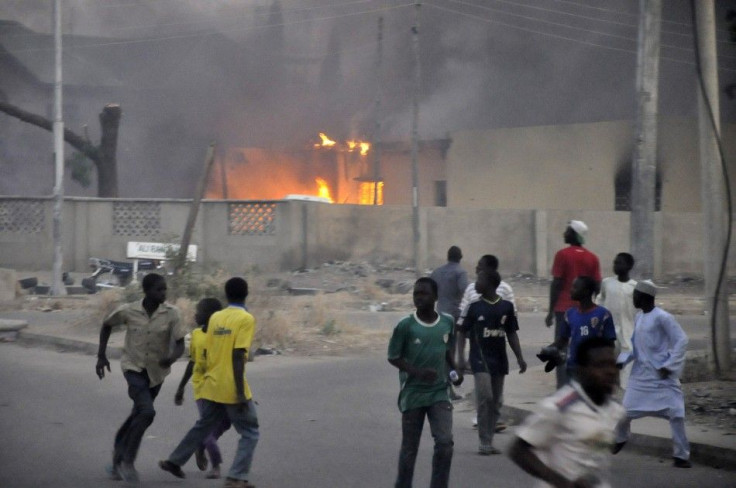Boko Haram Claims Responsibility for Deadly Blasts in Kano, Nigeria

The Islamist sect Boko Haram has claimed responsibility for coordinated bomb attacks on security forces in the northern Nigerian city of Kano that killed at least seven people late Friday.
The attacks prompted the government to announce a dusk-to-dawn curfew in the city of more than 10 million people.
Like other cities in the north, Kano has been plagued by an insurgency led by Boko Haram, which is blamed for scores of bombings and shootings, aimed mainly at government targets, that are growing in scale and sophistication.
A Boko Haram representative contacted reporters in the northeastern city of Maiduguri, where the sect is based, to claim responsibility for the attacks. A letter was also dropped around Kano, which appeared to be from the group.
The letter, written in the Hausa language spoken in northern Nigeria, said the attacks were retribution for police arrests and killings of members of the sect.
At the moment, seven casualties have been confirmed from different locations of the attacks, Olusola Amore, a police media officer, said in a statement.
The statement said the police are doing their best to bring the situation under control ... [we are] appealing to members of the public to come forward with information on the identity and location of these hoodlums.
The police said eight buildings were attacked, including police headquarters, three police stations, the headquarters of the secret services, and the immigration head office.
Witnesses said smoke billowed from the police headquarters after the blast blew out its windows, wrecked its roof, and triggered a blaze that firefighters struggled to control.
Boko Haram became active around 2003 and is concentrated in the northern states of Yobe, Kano, Bauchi, Borno, and Kaduna.
Boko Haram, a Hausa term meaning Western education is sinful, is loosely modeled on Afghanistan's Taliban movement.
The sect originally said it wanted sharia, Islamic law, to be applied more widely across Africa's most populous nation, but its aims have changed. Recent messages from its leaders have said it is attacking anyone who opposes it, at present mainly police, government, and Christian groups.
A bomb attack on a Catholic church just outside the capital Abuja on Christmas Day, claimed by Boko Haram, killed 37 people and wounded 57.
The main suspect in that attack, Kabiru Sokoto, escaped from police custody within 24 hours of his arrest, and police have offered a 50 million naira ($309,600) reward for information leading to his recapture.
Police arrested him Tuesday, and he escaped when their vehicle came under fire as they were taking him from police headquarters to his house in Abaji, just outside Abuja, to conduct a search there.
Last August, a suicide bomber blew up the United Nations' Nigeria headquarters in Abuja, killing at least 24 people.
There were two explosions in the southern state of Bayelsa in the oil-producing Niger Delta late Friday, but no one was killed. Local police said the attacks were not linked to Boko Haram.
Bayelsa, the home state of President Goodluck Jonathan, is holding a governorship election next month. Troops have been deployed in the state in recent weeks to stem any political unrest.
(Additional reporting by Felix Onuah, Segun Owen and Austin Ekeinde; Writing by Joe Brock; editing by Tim Pearce)
© Copyright Thomson Reuters 2024. All rights reserved.





















